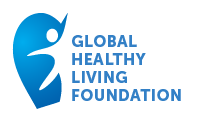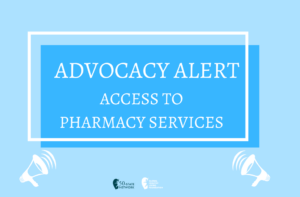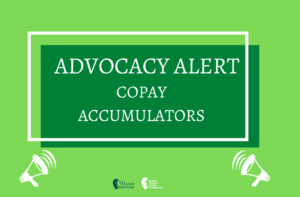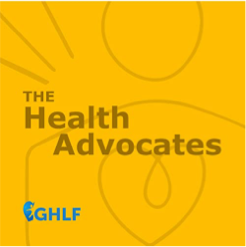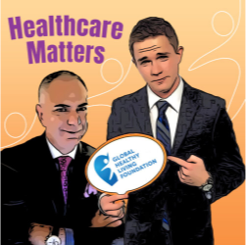"Black history is not confined to a single month; the same goes for health equity — it is a continuous narrative that should be woven into the fabric of our health care systems year-round." — Michelle Walters-Johnson, patient advocate
Advocacy: 50 State Network
Advocacy: Raise Your Voice with the 50-State Network

We elevate the voice of the chronic illness community through advocating to improve our health care system. The 50-State Network is the grassroots advocacy arm of CreakyJoints and the Global Healthy Living Foundation comprised of patients with chronic illness who are trained as health care activists to proactively connect with local, state, and federal health policy stakeholders to share their perspective and influence change. Join our network to effect change and make health care more affordable and accessible to patients with chronic illness.
Advocates like you
The 50-State Network has over 1600 trained and activated volunteer patient advocates from all over the country. The 50-State Network words to share the patient perspective, which is crucial in the state and federal health policy and regulatory arenas. Patients need a voice in all conversations that relate to access to treatment, safety or the quality of care.
Meet some of the advocates in our network:
Advocate Stories
As part of the 50-State Network, you have the opportunity to speak up, testify and advocate to ensure that legislation and public policy promote better access to health care. We strive to create a world in which patients know that they are not alone and that their unique perspective is informing policymakers in the creation of health policy. We do this through helping patients testify, submit testimony, write op-eds, and advocate.
Take a look at the testimony of these 50-State Network advocates:
We Should be Doing Everything we can to Help Patients Access Medications: A GHLF Advocate Testifies
‘I Dread the Battle’: A Migraine Advocate Shares the Challenges in Accessing Innovative Treatments
I’ve Tried More than 50 Treatments for Migraine: A GHLF Patient Advocate Shares Her Story
4 Letters Changed My Life: A GHLF Patient Advocate Shares Her Migraine Treatment Story
Bright lights. Loud sounds. Nausea. Brain fog. Missed work days and friend and family time. Living with migraine is already difficult. Navigating and dealing with the healthcare system can make it even harder. Know that you’re not alone in your journey.
Our 50-State Network focuses on your experience as a person living with migraine disease and helps guide you through innovative ways to raise awareness based on your comfort level. Whether that’s taking part in social media campaigns about your lived experience as a migraine patient, being quoted for articles or providing written testimony on how step therapy laws affect you, there’s multiple ways for you to get involved. As opportunities arise, we’ll be sure to reach out to you as things are happening in your state with our calls to action. Let’s advocate together to help bring about change for migraine patients like you!
Dealing with the painful, unpredictable, and embarrassing symptoms of Crohn’s disease or ulcerative colitis can take a toll on your physical and emotional well-being. Navigating the health care system can make it even harder. Know that you’re not alone in your journey.
Our 50-State Network focuses on your experience as a person living with inflammatory bowel disease and helps guide you through innovative ways to raise awareness based on your comfort level. Whether that’s taking part in social media campaigns about your lived experience as an IBD patient, being quoted for articles or providing written testimony on how step therapy laws affect you, there’s multiple ways for you to get involved. As opportunities arise, we’ll be sure to reach out to you as things are happening in your state with our calls to action. Let’s advocate together to help bring about change for migraine patients like you!
Read opinion pieces from 50-State Network advocates:
Take Action Now
The 50-State Network communicates regularly with policymakers at the federal and state level. We submit comments on behalf of the network and also sign on with other organizations to communicate our support or oppositions to existing and to proposed policies.
What Happens When I Join?
Joining the 50-State Network is free and simple. You’re invited to join to help make a difference in the way patients and their families access care. Membership is free, and your participation is voluntary. After you complete the sign-up form you will receive a welcome packet and a member of our team will contract you.
Download our Annual Advocacy Report
Through outreach, education and advocacy, we strive to create a world in which patients know that they are not alone and that their unique perspective is informing policymakers in the creation of health policy. Learn more about our impact and key initiatives by checking out our annual reports below.
Additional Resources
Was this article helpful?
YesNo
